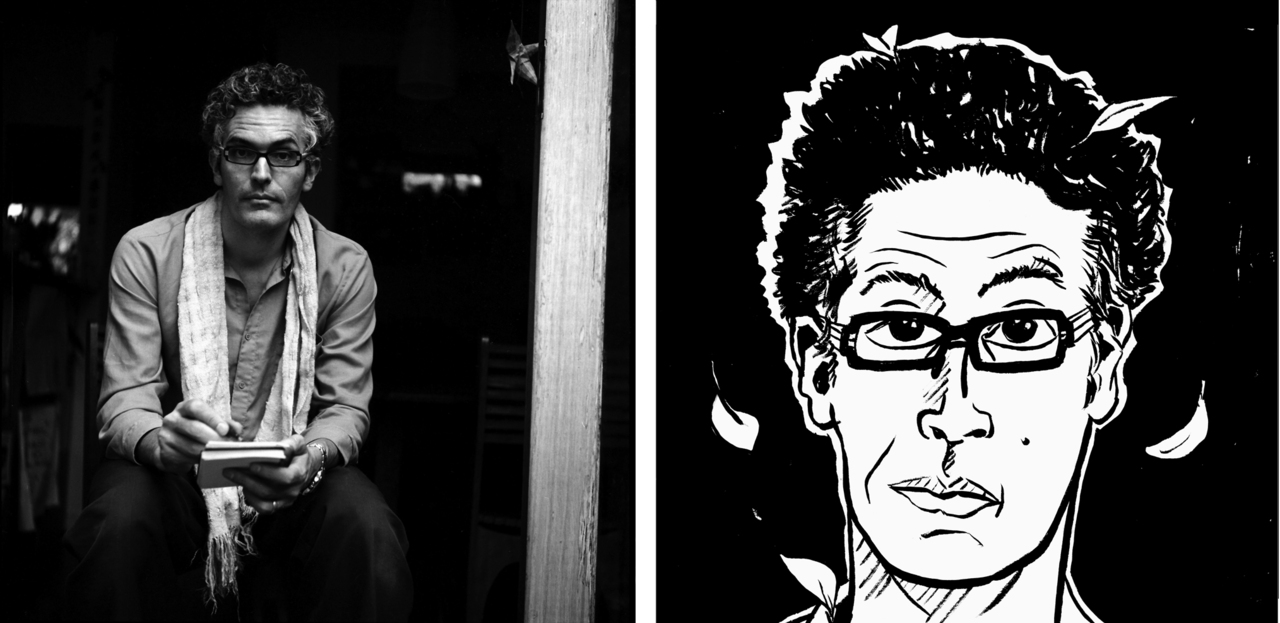Talking comics with Bernard Caleo
WHEN Bernard Caleo was a student at the University of Melbourne, the only thing he wanted to write his honours’ thesis on was The Adventures of Tintin – the popular French comic book series.
“Even though my (major was in) English literature, I convinced them that comics were literature so I could write my honours thesis on Tintin!” he laughs.
Almost 17 years later, Bernard’s passion for comic books is as strong as ever. He writes and draws comics, edits a comic book collection, leads comic book workshops, and most recently facilitates a Comic Book Club at the City Library in Melbourne.
“One of the exciting, exciting things about this club is that it’s the first one I’ve heard of in Australia and really what we’re doing is exploring how you talk about comics, how you make sense of them,” he enthuses.
This week, the club will be talking about Maus: A Survivor’s Tale by Art Spiegelman – a graphic novel about the Holocaust that Bernard says really changed the way English-speaking cultures viewed comics.
“We’ve had a bit of a stigma for maybe the last 50 years about the fact that comics are really just for kids. But that’s really changed since the advent of Art Spiegelman’s Maus,” he says.
“I think that’s the stuff that is breaking the mould of what comics are supposed to do or used to do and is bringing a new readership to comics.”
Maus is a “real world comic”, Bernard says, that differs from the genre comics that have inspired the recent comic-book-turned-movie- boom in Hollywood (this year alone there’s been Thor, Green Lantern, Green Hornet and X-Men: First Class).
“I reckon both those comics and the movies that are made of them are still regarded as kids’ stuff,” he says.
“Even if you go to them as an adult or a 40-year-old like me, you’re still regarded as indulging an inner child with those stories.”
However, Bernard disagrees with that view, saying genre and “real-world” comics alike have the capacity to provoke serious discussion.
For instance, Japanese manga Akira by Katsuhiro Otomo– which will also be discussed at the Comic Book Club – is set in neo-Tokyo – a city devastated by a nuclear explosion.
“It’s quite appropriate to be looking at it at the moment after (the) Fukushima (nuclear power plant disaster this year). Even genre comics have that relationship to real world politics and social issues,” he says.
“Comic books are fairly porous as a medium.”
Bernard feels that comic books can also transcend language barriers as they have been a great conversation starter at the Comic Book Club, even for those who don’t have the most confident command of English.
“We’ve got a wonderful woman (at the club) who’s Korean and she’s great because she sees things in the books that she wants to talk about and she jumps into explaining it,” he says.
“Even though she says ‘Oh, I don’t have the words’, she still absolutely nails it every time.”
These discussions are just one of the reasons Bernard is excited about the club’s progress.
“We’re discovering stuff about what comics are. I really think that some of the things we’re saying in there are new and we’re also discovering each other,” he says.
Next session, there may even be some art classes thrown in.
“Actually, because we’ve been talking so much, we haven’t got around to this,” he laughs. “But my idea is that next time, we’ll do some drawing as well. More like doodling or scribbling – another way to understand the comic in question.”
However, as with all activities in the Comic Book Club, Bernard will be keeping the session simple enough so that everyone can participate.
“I really want it to be pretty open,” he says.
“People should come along whether they’re comics-crazy like me or whether they’re just interested in comics.”
The Comic Book Club meets fortnightly on Wednesday from 6-7.30 pm at the City Library. Tonight, they will be discussing Maus Book 1 by Art Spiegelman. See Meld’s events calendar for the full program. You can also follow Bernard Caleo on tumblr.

